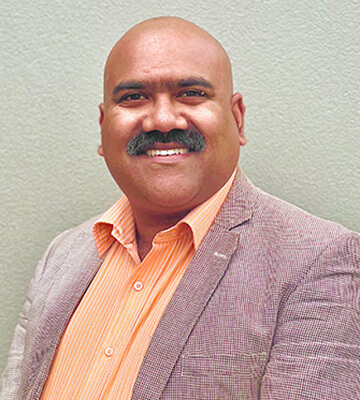Proactive wisdom tooth care, gentle extractions in Napier
For every 10 people, nine will suffer from complications due to wisdom teeth, according to the AAOMS (the American Academy of Oral and Maxillofacial Surgeons). While wisdom teeth represent just one of many types of tooth extractions performed by Dr Sundar, they are among the most common reasons teeth must be removed. During routine visits to the Dentiq office in Napier, Dr Sundar monitors the “lifecycle” of these back teeth. So, developmental problems are detected and addressed early before pain, and other complications arise.
The trouble with wisdom teeth
The initial permanent teeth begin to erupt or break through the gums, starting at around six. The last permanent teeth often don’t erupt until the ages of 17 to 25, just as teenagers mature into young adults and are gaining wisdom. By the time these “wisdom teeth” or third molars erupt at the very back of your mouth, there is frequently insufficient space to accommodate them. In turn, these teeth can become impacted. Impactions describe teeth that are fully or partially trapped underneath the gums. If these molars are impacted, you will probably know it! A few of the symptoms include:
- Pain
- Swelling
- Bad breath
- Unpleasant taste
- Jaw stiffness
By proactively monitoring, identifying, and treating problems early, you avoid all of these unpleasant symptoms and the associated missed work or school days. It must be noted that some patients never have problems with their wisdom teeth. Some patients don’t develop wisdom teeth, too. As with every service and procedure at Dentiq, care is tailored to your specific needs. If, however, a tooth does become impacted, it must come out.
The hard-to-reach and hard-to-clean back areas invite bacteria, which further invites the development of gum disease. Oral bacteria do not stay put. These harmful pathogens can travel to other parts of the body via the bloodstream, and lead to dangerous systemic infections. Additionally, due to how these molars erupt at an angle, they can damage surrounding teeth by pushing up against them. Cysts and nerve damage are also associated with untreated, impacted wisdom teeth.
A straightforward answer
Proactive extraction is straightforward; the tooth is gently lifted from its socket, or the treatment site is accessed, and the tooth is removed that way. Numbing medication is administered. So, you won’t feel anything. We can also discuss appropriate sedation as needed. Be sure and follow the instructions provided by your dentist. Proper after-care encourages healthy and prompt healing.
Do not wait for problems to start to schedule an appointment. Phone 06 880 6161 today.


